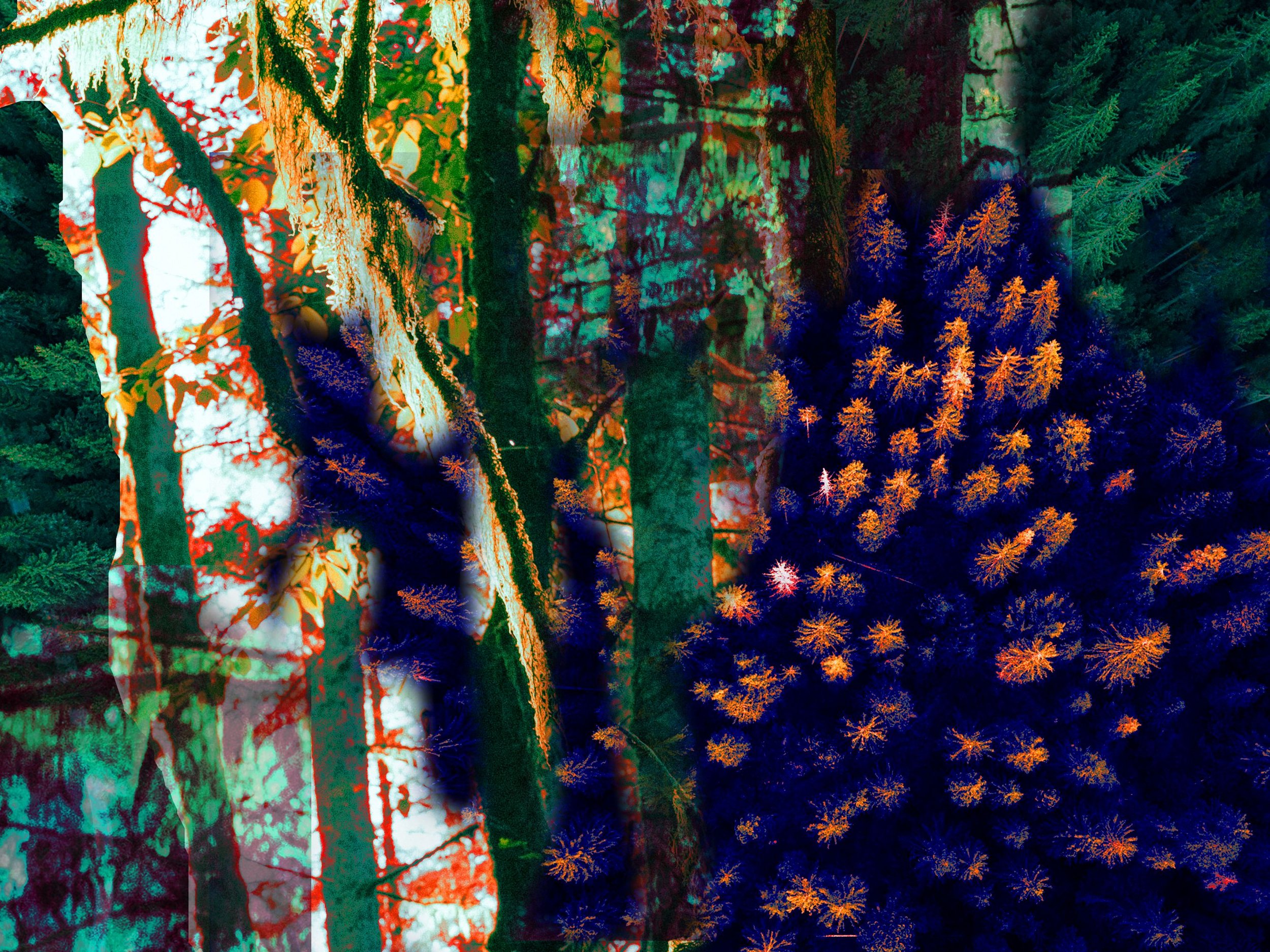Doug
The Douglas fir was 150 feet tall, perhaps taller. It leaned over the meadow, a steep green propped against open sky. Once the day’s work was through, once the great horned owl's round vowel had filled everything and faded to silence and filled everything again, I liked to tamp tobacco into my pipe and have a leisurely smoke. Rest my head against the cabin’s parched clapboards. Stare at the tree and forget that I was staring.
This was Arizona, a national forest, those years when I ascended ropes and lifted from bulky nests of sticks the not-yet-fledged hawks that my boss, an ornithologist, needed to see up close. I’d settle the birds in a bag and lower to the ground. I’d wait for measurements to be taken, blood to be drawn. I’d flinch, an angry mother stooping, screaming. Then I’d haul, set the birds in place, check my knots, and rappel.
The canopy was new to me, a secret home above my home, and I couldn’t get enough. So it was hardly surprising to hear, following two cups of strong coffee one aimless Saturday morning, the Douglas fir calling my name. I wiggled into a harness, dressed in loops of webbing and clanking carabiners, crossed the meadow. Solo. Uncertain. The best way to make friends with a giant tree.
There are methods that allow for a safe rise through boughs, tricks to gain the heights, but these technical details are unimportant. What’s important is the hour of higher-higher-higher, the meticulous gripping and pulling, how such tactile intimacy, such focus, becomes a kind of portal. To which magical realm does the portal offer passage? To this realm, nowhere else. To the secret home of shiny black ants and gymnast squirrels and baby birds. To the mazy body, the labyrinth of bark and space that houses hundreds upon hundreds.
The Douglas fir, Pseudotsuga menziesii, is monoecious, meaning individuals bear both male and female cones. Still, he was a he. After that first exploration, that long afternoon of breezy sway and drifting pollen clouds and butterflies in the belly, my evenings smoking outside the cabin were different, altered. Old man, how you been? Anything to report? Doug didn’t answer, of course, yet somehow he always answered.
Three seasons in the field, summer plus summer plus summer, countless fine Saturdays aloft. My sister visited from deciduous Vermont, land of maples, and I guided her through corridors of needles, chambers of resinous air. We strung hammocks just below Doug’s top and lounged until sunset, talking about Jonah and the Whale, about greater beings swallowing lesser beings, about ants, squirrels, spiders, bats, the many lives that live their lives inside larger lives.
Alas, by standing fast as young men chase their futures, elderly trees come and go. The raptor study ended and I said goodbye to Doug, got involved with coast redwoods, aspen groves, other jobs and other things. Now, a decade out, my mind returns to those countless fine Saturdays aloft. Opening the paper, clicking the laptop’s news, it’s too damn easy to feel as though what’s holding your life is a complicated wrong, that you reside amid horror, that the hug of your habitat, your home, this world, is all toxic waters and flaming skies and gape-mouthed children stabbing fingers at their dusty bellies. And drone strikes committed in your name. And blatant thievery. And loss.
Oh, but across the meadow and above the meadow, through the portal that is the Doug and leads into the Doug, oh, another truth emerges. The truth of an alternative scale. The truth of a timeless hug. I go there often in memory.
Purple dusk. Owl’s round voice filling the entirety of Arizona. My buddy Zak, from the research crew, is straddling a branch, switching on his headlamp, and I am rappelling, leaving him in the leaning crown. Later, free of gear, resting my head against the cabin, I puff my pipe and watch Zak’s floating glow, a tiny dot of light within Doug’s dark hugeness. That’s the glow of a man who is an ant, a squirrel, I think. That’s the glow of a man who, like me, like everyone, is a baby hawk.
Honestly, I never much enjoyed bagging those babies, never much enjoyed stealing from bulky nests and lowering to the dangerous ground where we humans go about our dangerous business. Giving them back to their secret home, though, setting them there gently, carefully, looking around for a moment, breathing deep before checking my knots—that was really special. Even after I’d hit the duff and unroped, even after I’d walked away, a piece of me lingered in the canopy. I suspect that piece won’t ever come down. Or maybe I hope.
LEATH TONINO is the author of two essay collections about the outdoors, The Animal One Thousand Miles Long and The West Will Swallow You. Read more.
Originally appeared in The West Will Swallow You (Trinity University Press, 2019).

